In order to further deepen international exchanges and expand students' international perspectives, our college will send 126 undergraduate and graduate students to Hong Kong for a two-day study visit from November to December 2024.
During the project, students will engage in face-to-face exchanges with professional scholars from the University of Hong Kong, City University of Hong Kong, Hong Kong Polytechnic University, and Hong Kong University of Science and Technology to jointly study and explore cutting-edge development trends and challenges such as intelligent construction and intelligent transportation. They will gain an understanding of current interdisciplinary research hotspots and achievements, and help students open up new ideas in career planning and academic advancement.
1、Lecture on Intelligent Construction at the University of Hong Kong
During the visiting period, Professor Deng Xiaowei from the University of Hong Kong shared his team's research direction on the theme of intelligent construction. He used data-driven artificial intelligence technology to numerically model complex renewable energy systems and applied it to lightweight intelligent materials and structural design in fields such as civil engineering, machinery, and aviation. This sparked students' strong interest in the field of intelligent construction and their desire to explore interdisciplinary applications.
In addition, Professor Deng also shared "Historical Opportunities of Hong Kong Civil Engineering and Introduction to Master's Programs in Civil Engineering at the University of Hong Kong", introducing the advantages and opportunities of Hong Kong's civil engineering industry compared to mainland China, and sharing career path choices; At the same time, based on the research direction, curriculum, and application requirements of the Department of Civil Engineering at the University of Hong Kong, share the efforts of the University of Hong Kong in cultivating innovative talents and promoting industry progress. He also specifically mentioned that the international environment and abundant academic resources of the University of Hong Kong provide students with a broad platform for development, encouraging students from Shenzhen University who aspire to further deepen their knowledge in the field of civil engineering to actively apply.
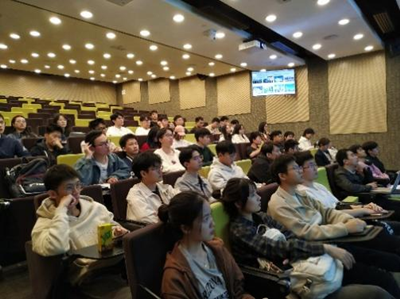
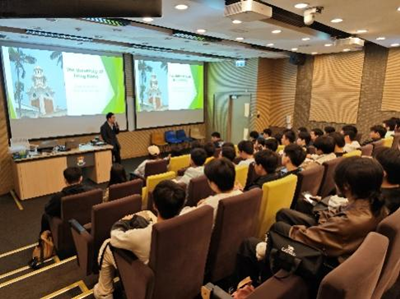
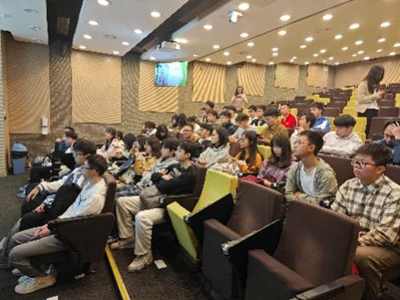
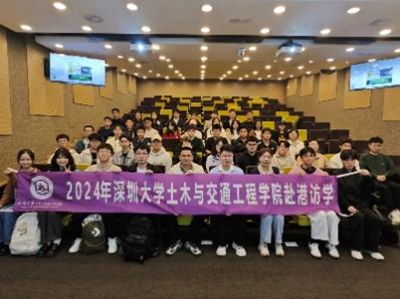
2、Visit to Hong Kong University Laboratory
In addition to the lecture, students also visited the IMSE CAVE laboratory of the Faculty of Engineering at the University of Hong Kong, as well as the latest Innovation Wing laboratory at the University of Hong Kong.
IMSE CAVE is a high-tech virtual system developed by the Faculty of Engineering at the University of Hong Kong, combining cutting-edge engineering design and innovative virtual technology. This system combines sensors, distributed computing, big data processing, and management to provide a highly realistic virtual environment that feels like being on site. IMSE CAVE provides high-performance virtual environments at low cost, which can be flexibly applied to industrial, commercial, and non-commercial purposes; With just a small room of a few square meters, you can explore unlimited virtual space at any time, using motion capture and VR technology to provide cost-effective design, analysis, and evaluation for complex engineering systems and operations. On site students experience firsthand by connecting data gloves, trackers, joysticks, and sports platforms.
The University of Hong Kong's Innovation Wing is one of the latest cutting-edge technology maker spaces in Hong Kong and across Asia, equipped with comprehensive prototyping facilities. Through the sharing of volunteers from the School of Engineering, students learned about the output achievements in interdisciplinary engineering technology fields such as intelligent construction and sustainable development.
The visits to these two laboratories not only allowed students to witness the charm of cutting-edge technology, but also stimulated their enthusiasm for technological innovation.
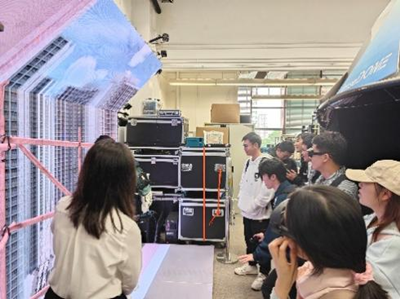
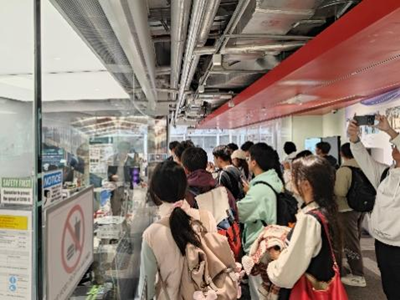
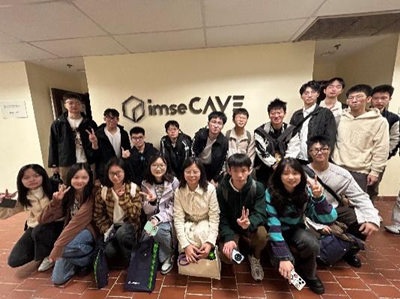
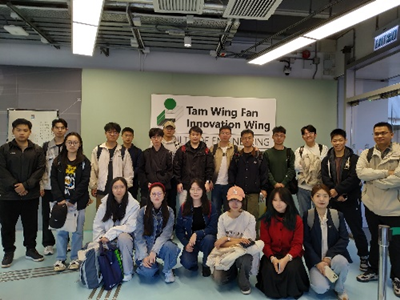
3、Hong Kong University Campus Visit
In addition to studying, students visited the campus of the University of Hong Kong, including the century old campus, the University of Hong Kong Red Wall, and the Geological Museum. They climbed up the stairs along Zhongshan Street and enjoyed the beautiful scenery of the Lotus Pond and Mingyue Spring. They also exhibited at the University of Hong Kong Art Museum and listened to the stories of graduates in front of the main building of the University of Hong Kong. The profound sense of history and the innovative spirit of modernity intertwine, and the visiting trip allows students to deeply experience the academic atmosphere and cultural heritage of the University of Hong Kong.
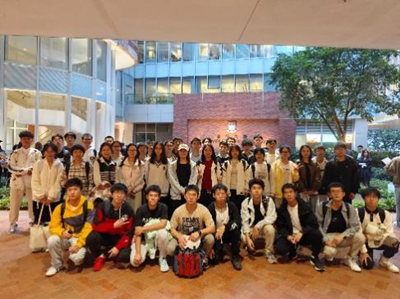
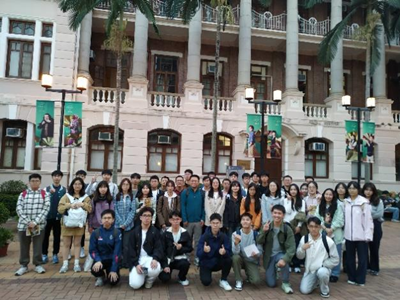
4、Visit to Hong Kong Polytechnic University
Subsequently, the students visited the Hong Kong Polytechnic University and had in-depth exchanges and discussions with Dr. Wu from the Department of Building Environment and Energy Engineering. At the symposium, Dr. Wu not only provided a detailed introduction to the basic situation and advantages of the Hong Kong Polytechnic University, as well as the further education paths, application processes, and scholarship information in the field of civil engineering, but also shared their research achievements and experience in the transformation of industry, academia, and research in the fields of building environment and energy engineering, answering students' questions about further education and research, and helping students who are interested in continuing their studies plan their future academic paths.
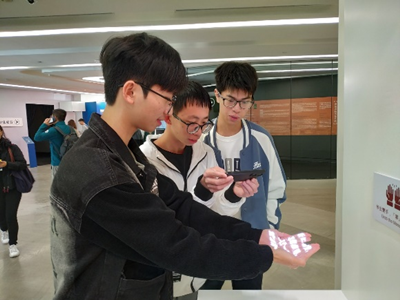
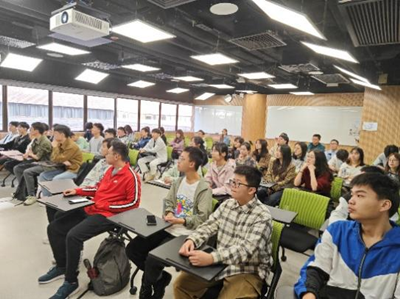
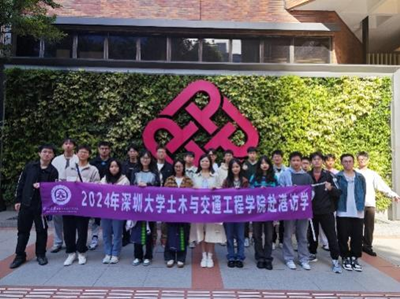
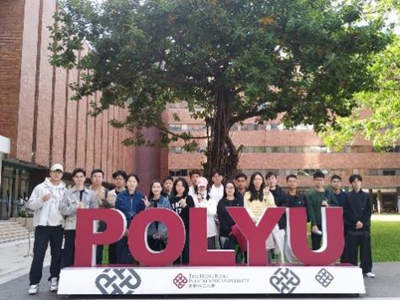
5、Visit to Hong Kong University of Science and Technology
The Hong Kong University of Science and Technology is located on the Clear Water Bay Peninsula in Sai Kung District, New Territories, Hong Kong. It is surrounded by mountains and the sea, with pleasant scenery. Under the guidance of doctoral students from the Department of Civil Engineering and the Department of Engineering, students enjoyed the scenery along the way, familiarized themselves with the campus environment of HKUST, and learned about the academic atmosphere of HKUST's Department of Civil Engineering, as well as its doctoral applications and scholarships from the university and the Hong Kong government through communication with doctoral students.
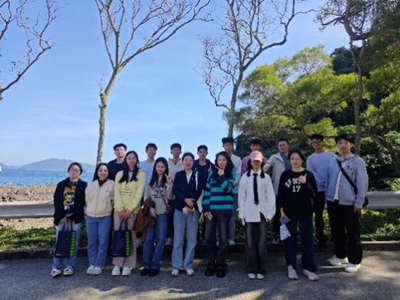
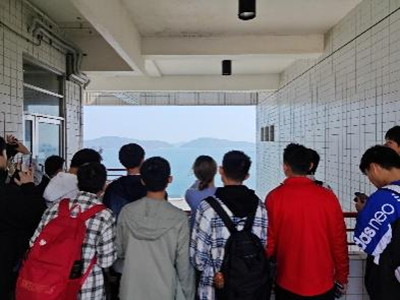
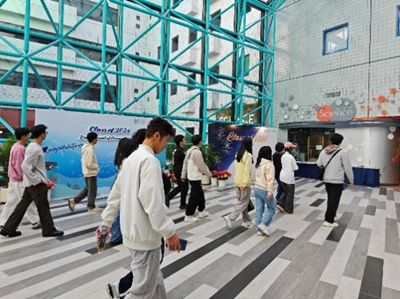
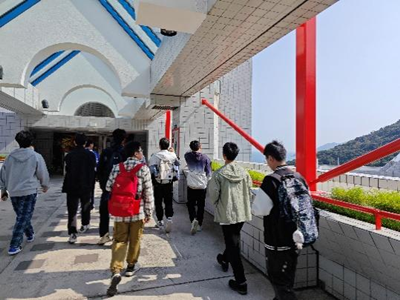
6、City University of Hong Kong
When visiting City University of Hong Kong, students focused on visiting the Building Equipment and Construction Engineering Laboratory, Heavy Structure Testing Laboratory, and Materials Laboratory, which are closely related to the Department of Civil Engineering. They also exchanged academic experiences, research progress, and feelings about studying and living at City University of Hong Kong with doctoral or postdoctoral students.
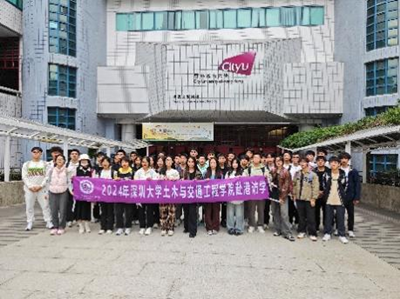
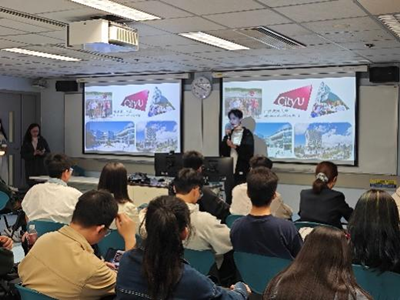
7、Summarize
2024 marks the beginning of our internationalization year, with a focus on cultivating high-level talents with an international perspective. This visit to Hong Kong is an attempt by our institution to cultivate international talents. Looking ahead to the future, we will continue to uphold the spirit of the academy's motto of "building sincerity with rammed earth and refining wood to perfection", constantly explore new academic fields and practical opportunities, and strive to cultivate more outstanding talents with international perspectives and innovative abilities.